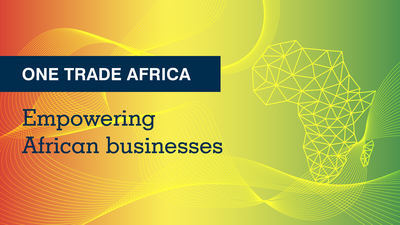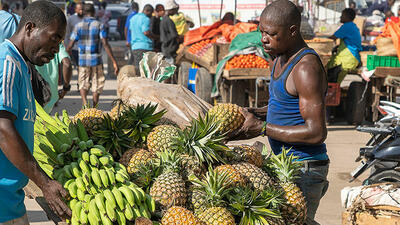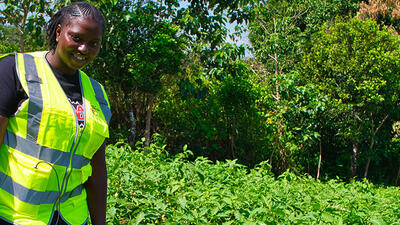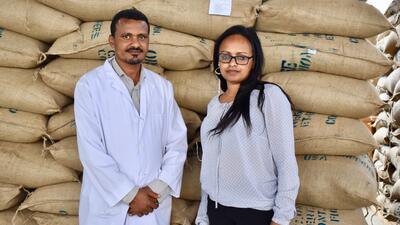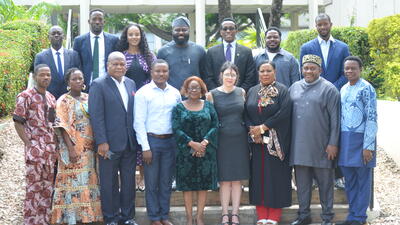

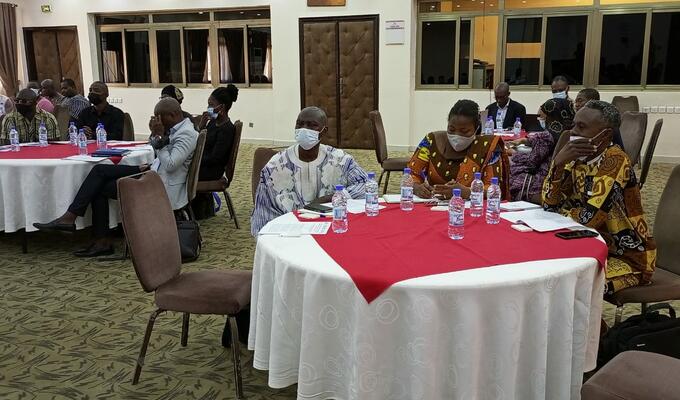
Facilitating trade at a human scale for inclusive cross-border trade
Fostering food security, the rule of law and human rights in West Africa through newly established Trade Information and Border Assistance Offices thanks to ITC pilot
The International Trade Centre (ITC) trained 25 officers from West Africa on techniques, methodologies and tools to assist small-scale traders, women and youth to facilitate their compliance with cross-border trade formalities, solve their operational issues when crossing the borders and advocate for inclusive trade facilitation.
At the opening of the regional training organized early May in Ouagadougou, Burkina Faso, attendees representing the Permanent Interstate Committee for Drought Control in the Sahel (CILSS), the Economic Community of West African States Commission and the West African Economic and Monetary Union Commission, demonstrated strong interest in fostering inclusive trade through the trade facilitation solutions presented at the training.
Organized in partnership with the West African Association for cross-border trade in Agro-Forestry-Pastoral, Fisheries and Food products, the three-day training was tailored to officers at established or planned Trade Information and Border Assistance Offices along strategic border points in West Africa, which will promote food security and the rule of law in West Africa. The officers were coached in empowering small-scale traders and especially women traders to uphold for their rights when crossing the border, a service which is often inaccessible for certain vulnerable populations. The goal is to create a link between communities and local and central authorities towards common prosperity.
Abdoulaye Mohamadou, CILSS Executive Secretary said that despite the many policymaking initiatives “the free movement of agricultural products in general and agri-food products specifically, is a major challenge in the region. Trade information and border assistance offices are a convincing innovative solution to the problems of customs hassles.”
The new border offices replicate an international best practice piloted by ITC in Southern Africa. They serve to provide traders with information on trade laws and regulations, customs clearance documents or forms as well as with other appeal and complaint mechanisms. Providing daily, tailored services to small-scale traders and in particular women and young people, they will thus contribute to an improved flow of food products across the borders of West Africa, support traders’ rights and enhance their voluntary compliance with the region’s rule of law.
Timothée Bruneteau, Associate Trade Facilitation Programme Officer at ITC said: “The border offices offer trade facilitation mechanisms on a human scale. Border communities will be able to navigate cross-border trade in their local language. This offers a clear path towards strengthening food security and the rule of law in remote areas of West Africa often overlooked by central governments.”
As part of the funding allocated to the ITC Trade Facilitation Programme and contribution from the United Nations Multi-Partner Migration Trust Fund, four offices have been established so far. More offices should be established all around West Africa.




